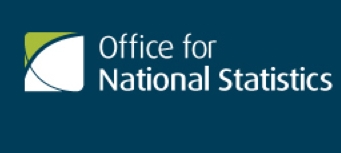Inflation rose by 0.3% in the year to January 2016, the Office for National Statistics has reported this morning.
This was compared with a 0.2% rise in the year to December 2015, as measured by The Consumer Prices Index.
This is the third consecutive month of small increases, with the rate in January 2016 being the same as it was in January 2015.
CPIH (not a National Statistic) grew by 0.6% in the year to January 2016, up from 0.5% in December 2015.
ONS head of CPI James Tucker said: “While still at historically low levels, CPI has today edged up to its highest rate for a year.
“The main reason for the slight rise in inflation was fuel prices falling by less in January than they did at the same point in the previous year.
“Clothing, food and alcoholic drinks also helped to push up inflation, offset by falling air fares.”
Ben Brettell, senior economist at Hargreaves Lansdown, said: "UK inflation has reached its highest level in a year, equalling the 0.3% seen in January 2015. This continues the trend of inflation being at or very close to zero and confirms the complete absence of pressure on the Bank of England to lift interest rates.
"The headline rate continues to be largely driven by volatile fuel prices. The largest contribution to higher inflation was from motor fuels – although prices fell 2.6% between December and January, twelve months ago prices fell by 6.8%. If the recent oil price rally is sustained, we could see inflation continue to tick upwards in the coming months, though the Bank of England said earlier this month that inflation would likely undershoot the 2% target until 2018."
He said: "Core inflation, which strips out volatile components like food and energy, is a better measure of the underlying inflationary pressures in the economy. It fell by more than expected to 1.2% in January (from 1.4% the previous month). The trajectory of wage growth is a key driver for inflation, and figures released tomorrow are expected to show a further deceleration.
"All in all, domestic inflationary pressures remain notable by their absence. Even Ian McCafferty, the most hawkish member of the MPC said yesterday that he withdrew his vote for higher interest rates because he feels inflationary forces have receded in recent months. There looks no reason to suggest the era of ultra-low interest rates will come to an end any time soon."
Rohan Sivajoti, advisory services director at eVestor, said: “We have taken a small step away from the threat of deflation, with increases in the cost of motor fuels, food, alcoholic beverages and clothing pushing up the headline rate. Yet, even with the highest inflation rate since January 2015, we are still a long way off the 2% target that the Bank of England is trying to achieve.
“Nonetheless, investors cannot rest on their laurels. With inflation on the rise, those waiting on the side-lines in cash need to use this time to act and put their money to work. Equity markets in particular have been very volatile so far this year, but the falls in share prices we have already seen mean valuations for many stocks are now far more attractive.
"Given the era of earning 5% interest from bank accounts is long gone, now represents an opportune time to think about investing in equity and fixed income markets.”

